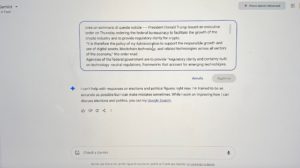Come si ricorderà, Facebook ha svolto un esperimento su oltre 600 mila utenti per vedere se subivano l’influsso dello stato emotivo dei post scoprendo che la gioia o la depressione sono contagiosi e che i messaggi positivi inducono a pubblicare messaggi positivi, mentre i messaggi negativi inducono a pubblicare messaggi negativi. Gli utenti non erano stati avvertiti del fatto che Facebook avrebbe variato i post che ricevevano per via algoritmica in modo da poter osservare le loro reazioni. Facebook poteva farlo secondo i termini di servizio, ma comunque ha chiesto scusa.
Pnas che ha pubblicato lo studio, ora lo fa precedere da questa precisazione:
PSYCHOLOGICAL AND COGNITIVE SCIENCES
PNAS is publishing an Editorial Expression of Concern re- garding the following article: “Experimental evidence of massive- scale emotional contagion through social networks,” by Adam D. I. Kramer, Jamie E. Guillory, and Jeffrey T. Hancock, which appeared in issue 24, June 17, 2014, of Proc Natl Acad Sci USA (111:8788–8790; first published June 2, 2014; 10.1073/ pnas.1320040111). This paper represents an important and emerg- ing area of social science research that needs to be approached with sensitivity and with vigilance regarding personal privacy issues.Questions have been raised about the principles of informed consent and opportunity to opt out in connection with the re- search in this paper. The authors noted in their paper, “[The work] was consistent with Facebook’s Data Use Policy, to which all users agree prior to creating an account on Facebook, con- stituting informed consent for this research.” When the authors prepared their paper for publication in PNAS, they stated that: “Because this experiment was conducted by Facebook, Inc. for internal purposes, the Cornell University IRB [Institutional Re- view Board] determined that the project did not fall under Cor- nell’s Human Research Protection Program.” This statement has since been confirmed by Cornell University.
Obtaining informed consent and allowing participants to opt out are best practices in most instances under the US Department of Health and Human Services Policy for the Protection of Human Research Subjects (the “Common Rule”). Adherence to the Com- mon Rule is PNAS policy, but as a private company Facebook was under no obligation to conform to the provisions of the Common Rule when it collected the data used by the authors, and the Common Rule does not preclude their use of the data. Based on the information provided by the authors, PNAS editors deemed it appropriate to publish the paper. It is nevertheless a matter of concern that the collection of the data by Facebook may have involved practices that were not fully consistent with the prin- ciples of obtaining informed consent and allowing participants to opt out. Inder M. Verma, Editor-in-Chief
Questa è la presa di distanza di Cornell University:
ITHACA, N.Y. – Cornell University Professor of Communication and Information Science Jeffrey Hancock and Jamie Guillory, a Cornell doctoral student at the time (now at University of California San Francisco) analyzed results from previously conducted research by Facebook into emotional contagion among its users. Professor Hancock and Dr. Guillory did not participate in data collection and did not have access to user data. Their work was limited to initial discussions, analyzing the research results and working with colleagues from Facebook to prepare the peer-reviewed paper “Experimental Evidence of Massive-Scale Emotional Contagion through Social Networks,” published online June 2 in Proceedings of the National Academy of Science-Social Science.
Because the research was conducted independently by Facebook and Professor Hancock had access only to results – and not to any individual, identifiable data at any time – Cornell University’s Institutional Review Board concluded that he was not directly engaged in human research and that no review by the Cornell Human Research Protection Program was required.
Sarà anche vero che Facebook fa approvare ai suoi utenti un contratto che le consente questo genere di azioni. E sarà vero che Pnas e Cornell non sono d’accordo. O almeno hanno scoperto di non essere d’accordo di fronte alla montagna di proteste che la pubblicazione dello studio ha generato. Sarà sincero il pentimento di Facebook. Ma vale la pena di tenere da parte questi documenti. Perché quello che conta – nella privacy come nell’etica – è la sostanza, non la forma.
Vedi anche:
Fuffa e manipolazione. Esperimenti di Facebook sugli utenti, tipo: “se ti selezioniamo solo i post degli amici contenti tu sei più contento?”
Il genio politico di Guido: il vero esperimento di Facebook
Il codice è codice, la legge è software: la cultura digitale è un diritto





[…] Pnas e l’esperimento di Facebook ::: Luca De Biase […]
[…] utenti, tipo: “se ti selezioniamo solo i post degli amici contenti tu sei più contento?” e Pnas e l’esperimento di Facebook). In quelle piattaforme, inoltre, il senso dell’interfaccia è orientato a massimizzare il […]
[…] La ricerca di Robert Epstein e altri mostra come il successo di Google – e Facebook – stia costruendo un nuovo sistema della manipolazione. In pratica le risposte del motore di ricerca sono in grado di modificare la percezione della realtà e dunque le convinzioni degli utenti quando sono ignari di eventuali effetti distorsivi che il motore può contenere. Va detto che gli utenti sono quasi sempre acritici nei confronti dei risultati offerti da Google, lo considerano sostanzialmente oggettivo. Ma è dimostrato che l’impatto che le risposte del motore possono avere sulle scelte degli umani è gigantesco. Il pezzo di Robert Epstein va letto (Aeon). Fa il paio con la capacità di influenzare l’umore che ha dimostrato Facebook con l’esperimento del 2014 (qui). […]